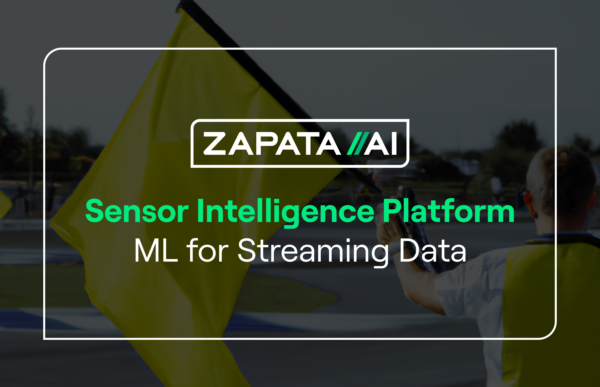
From the Battlefield to the Boardroom: What Enterprise AI Leaders Can Learn From U.S. Special Operations

DARPA Quantum Benchmarking: Three Ways Quantum Transforms Business Outcomes in Unexpected Ways

Since our founding, we’ve met with enterprise customers in many different sectors — retail, transportation, pharma, finance and more. No matter the industry, we’ve found that some of the biggest challenges enterprises face are optimization problems: finding a way to maximize or minimize a metric of interest given a system of constraints.
Every business shares two fundamental optimization problems: maximizing revenue and minimizing costs. This gets more complex the larger the organization is. When you’re a Fortune 500 company with a global network of resources, supply chains and customers, there are millions if not billions of variables that can be optimized to drive better results.
As it turns out, optimizing complex systems is one of the best use cases for quantum computers, and one of the areas where quantum computers could provide an advantage first.
To be clear, quantum computing will never run all the operations of global companies — at least not for the foreseeable future. There is too much complexity and too much uncertainty for even the most advanced quantum computers conceivable to handle.
What quantum computers can do is optimize subsets of the overall business operation. The fundamental problem of maximizing profits and minimizing costs can invariably be broken down into smaller problems with defined variables and constraints. A simple example would be finding the most efficient routes for distributing goods to hundreds of retail locations. These are the problems that can be optimized with the aid of a quantum computer.
It’s also worth noting that many problems can be solved without quantum computers. Classical computers have evolved over the last 50 years to be very good at what they do. There’s no reason to throw out all that R&D. In fact, quantum computers will always work in tandem with classical computers for pre- and post- processing of data. In most cases, quantum computers will solve just one component – albeit a major bottleneck component – of a larger problem within a classical framework.
Quantum computers add the most value for what we in the computer science space call “NP-hard” problems: problems that are too complex for a classical algorithm to solve efficiently — that is, within a human lifetime. In a business context, these problems are hard because they have many constraints and variables. But they also come with a massive reward for optimizing the metric of interest.
Let’s break down a few examples of these NP-hard optimization problems where quantum computers can add value:
Banks and other financial institutions use complex machine learning algorithms to optimize their investment portfolios, predicting which stocks to buy or sell to maximize their return. But classical algorithms are inherently limited by the vast complexity of the problem at hand. The more variables are included, the longer it takes for the algorithms to run. By the time the models converge, the market conditions may have shifted dramatically.
Quantum computers hold promise to consider more complex sets of variables, converge on solutions more quickly, and find better solutions than state-of-the art classical algorithms. To date, we’ve been working with clients such as BBVA to explore how we can better optimize investment portfolios using the quantum devices and quantum-inspired models available today. Recently, in an industry first, we demonstrated how quantum-inspired models outperformed classical algorithms in a portfolio optimization problem. You can download that study here.
The traveling salesman problem is a classic computing problem that aims to find the most efficient route connecting a series of geographic locations. It has big implications for supply chains. Quantum computers are well suited for solving this kind of problem, with the potential to slash millions in fuel costs by finding more efficient routes. With enough data, they could even optimize routes for real-time weather changes, traffic patterns or inventory needs.
Quantum can also be used to optimize warehousing and distribution between factories and last mile deliveries, while also taking into consideration special shipping and storage requirements (e.g., shelf life, temperature, etc.). By optimizing where inventory sits, enterprises could maximize revenue and minimize stock-outs in their supply chain.
Volkswagen has used a quantum routing algorithm to optimize bus routes in Lisbon, and Zapata has worked with a Top 5 Food & Beverage company to leverage quantum methods to optimize delivery systems to over 700,000 vending machines.
The drug discovery process can take decades and costs billions of dollars. Any company that can speed up this process will gain a powerful competitive advantage. Quantum computing has the potential to deliver this speed-up by optimizing the protein design process.
For larger drug molecules, there are near infinite possibilities for the configurations of the atoms. The goal of researchers is to find the configuration best suited for the desired function of their drug. For any protein larger than a few dozen amino acids, there will be too many possibilities for classical computers to efficiently find the optimal configuration. In contrast, by taking advantage of the quantum physics concept of superposition, quantum computers can consider all possible configurations and identify the best configuration for the problem of interest.
Given quantum computers’ promise to solve complex optimization problems, you might be asking yourself, what can quantum computers actually do today?
The reality is that quantum computers today are far from their full potential. We call this the era of NISQ: Noisy Intermediate-Scale Quantum devices. These devices are called “noisy” because they are extremely vulnerable to disturbances and require significant error correction to achieve reliable results.
But even if these quantum computers can’t provide an exponential increase in problem solving ability, for certain problems they are already outperforming the best classical computers — and that adds a lot of value.
The quantum approximate optimization algorithm (QAOA) is a good place to start with quantum optimization on NISQ computers. It’s tailored to run current, gate-based devices such as those created by IBM, Google and Honeywell, and there’s a growing body of research applying QAOA to different enterprise optimization problems. There’s also another emerging class of devices called quantum annealing devices that are even better suited for optimization problems.
But the reality is that you don’t even need quantum devices to harness the power of quantum computing. Quantum-inspired algorithms can simulate quantum systems on classical computers. They may not have as much power as real quantum devices, but they can still make a difference compared to purely classical algorithms.
Regardless of whether you use QAOA, quantum annealing, or quantum simulators, it can be difficult for enterprises to map their problems onto quantum computers. Most of our customers aren’t Ph.D mathematicians, they’re managers with a business goal they want to solve: reducing costs, saving time, reducing emissions, etc. They may not even recognize that these are optimization problems that can be solved with quantum computers. Our role is to help enterprises translate their business problems into the language of quantum computation.
As you start down the path of quantum-enhanced optimization, here are a few things to remember.
The first is that quantum should be thought of as an addition to existing classical resources, not a replacement. Quantum will always be just one specialized, accelerating step within a mostly classical processing framework. This also means that enterprises won’t achieve a quantum advantage unless they take care of basic software engineering issues like data cleaning and pre-processing.
Second, enterprises shouldn’t wait for quantum computers to reach their zenith to start building applications. By that time, their competitors will already have built the teams and applications necessary to gain an advantage, and it will be difficult for others to catch up. By leveraging our proprietary system Orquestra®, we’ll work with you to build software applications that are ready to run on the NISQ devices available today, as well as the more advanced devices of the future.
When you’re ready to discuss how quantum computing can help solve your biggest challenges, get in touch.


